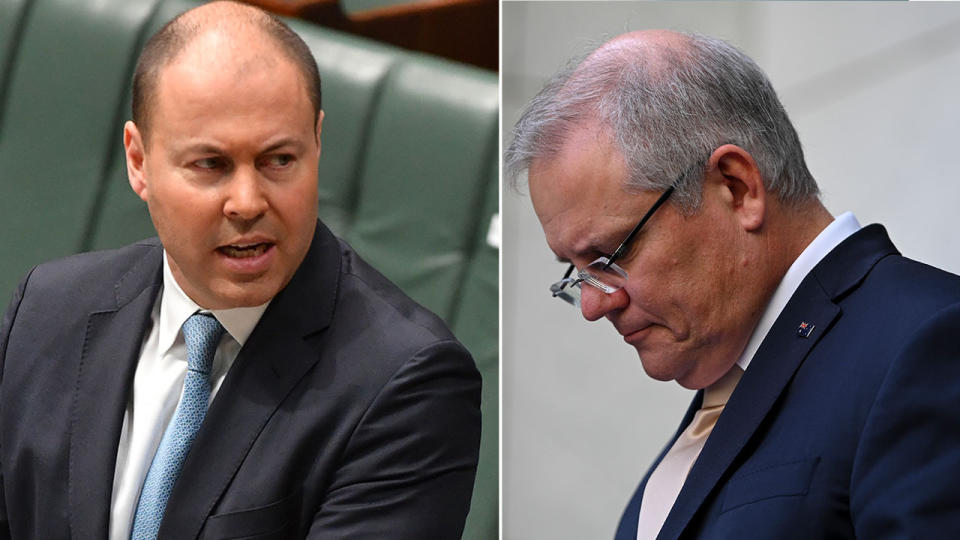'Australia is in recession': Treasurer's confirmation after GDP contraction

This article has been updated as at 1:00pm AEST.
Australia’s gross domestic product (GDP) has shrunk 0.3 per cent over the March quarter according to the Australian Bureau of Statistics (ABS).
Treasurer Josh Frydenberg confirmed on Wednesday that Australia was now in a recession, ending 29 years of growth.
ABS chief economist, Bruce Hockman, said it was the slowest through-the year growth since September 2009, when Australia was in the midst of the global financial crisis.
It follows Tuesday’s ABS data, which revealed wages and salaries were flat in the March quarter. The tax take dropped 5.4 per cent between December and March and government spending grew by 2 per cent.
Today’s figures follow the nation’s 0.5 per cent GDP growth in the December quarter, but are largely meaningless as the impact of the coronavirus pandemic mostly took its toll on the economy during the months of April and May.
Also read: How to recession-proof your money
Also read: Here’s what a recession will look like in Australia
NAB head of markets research Ivan Colhoun said the March quarter figures were “the most irrelevant GDP figure ever published”, and that the effect of the virus on the economy in April and May have put Australia in an “instant recession” regardless.
Commonwealth Bank predicts a 9 per cent contraction in the June quarter.
"Whichever way you look at it, Australia will be in recession," Commonwealth Bank senior economist Belinda Allen told AAP.
What’s a recession?
A recession is a decline in economic activity, which means businesses and individuals are spending less money.
And it’s no mystery as to why we’ve had one now: businesses have been forced to close doors, Aussies have lost their jobs and all of us have been told to stay home.
The technical definition of a recession is two consecutive quarters of GDP shrinkage, but like Colhoun said, a recession-like economy can still exist without this.
What does a recession mean for me?
In a typical recession, Australians stop spending money, businesses begin to fold and ultimately jobs are lost.
“Good businesses shut, not because of any mismanagement, but because next to no one is buying their produce,” independent economist Stephen Koukoulas told Yahoo Finance.
The result?
“People lose their jobs, often for months and years of high unemployment follow.”
Once this happens, the government will then need to make decisions to grow the economy, which means it will need to implement policies around taxation, stimulus measures or education.
And, if you’re an employee, it’s not a good idea to quit your day job and look for something else, because there will be fewer jobs to go around.
What about our government stimulus measures?
While the JobKeeper and JobSeeker stimulus packages might stave off some of the unemployment, when the stimulus measures end in September, that’s when Australia will really hit mission critical.
"It's clearly going to be a critical point when that scheme [JobKeeper] comes to an end and also when the deferral for six months of mortgage payments and other payments that the banks are offering … so that's a critical point for the economy," RBA governor Philip Lowe told the Senate Select Committee on Covid-19 last week.
“If we have not come out of the current trough in economic activity, there will be, and there should be, a debate about how the JobKeeper program transitions into something else, whether it's extended for specific industries, or somehow tapered,” he said.
Follow Yahoo Finance Australia on Facebook, Twitter, Instagram and LinkedIn.

 Yahoo Finance
Yahoo Finance 
